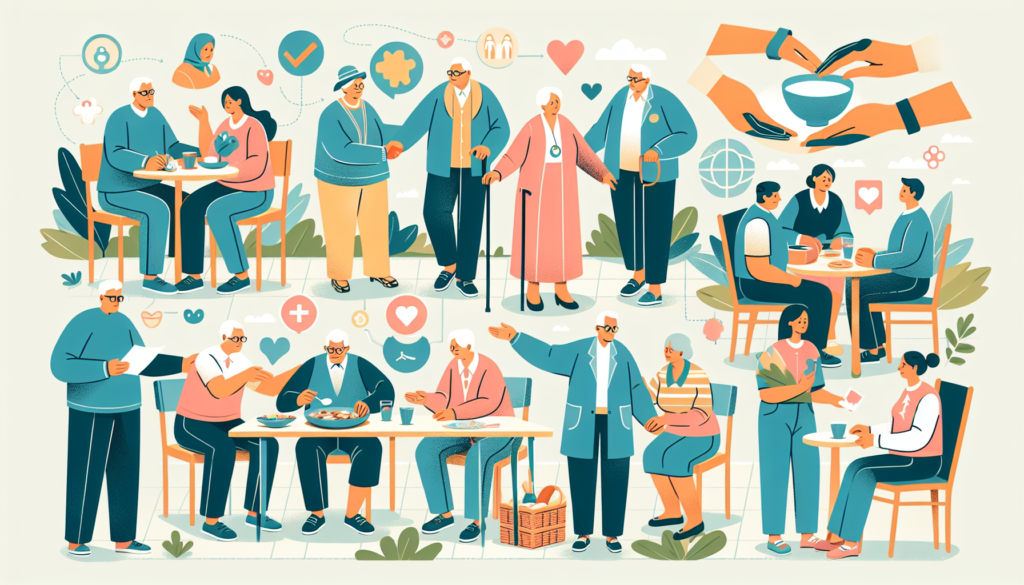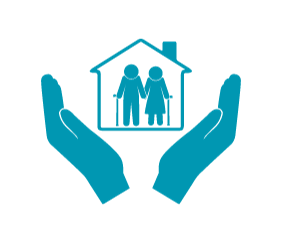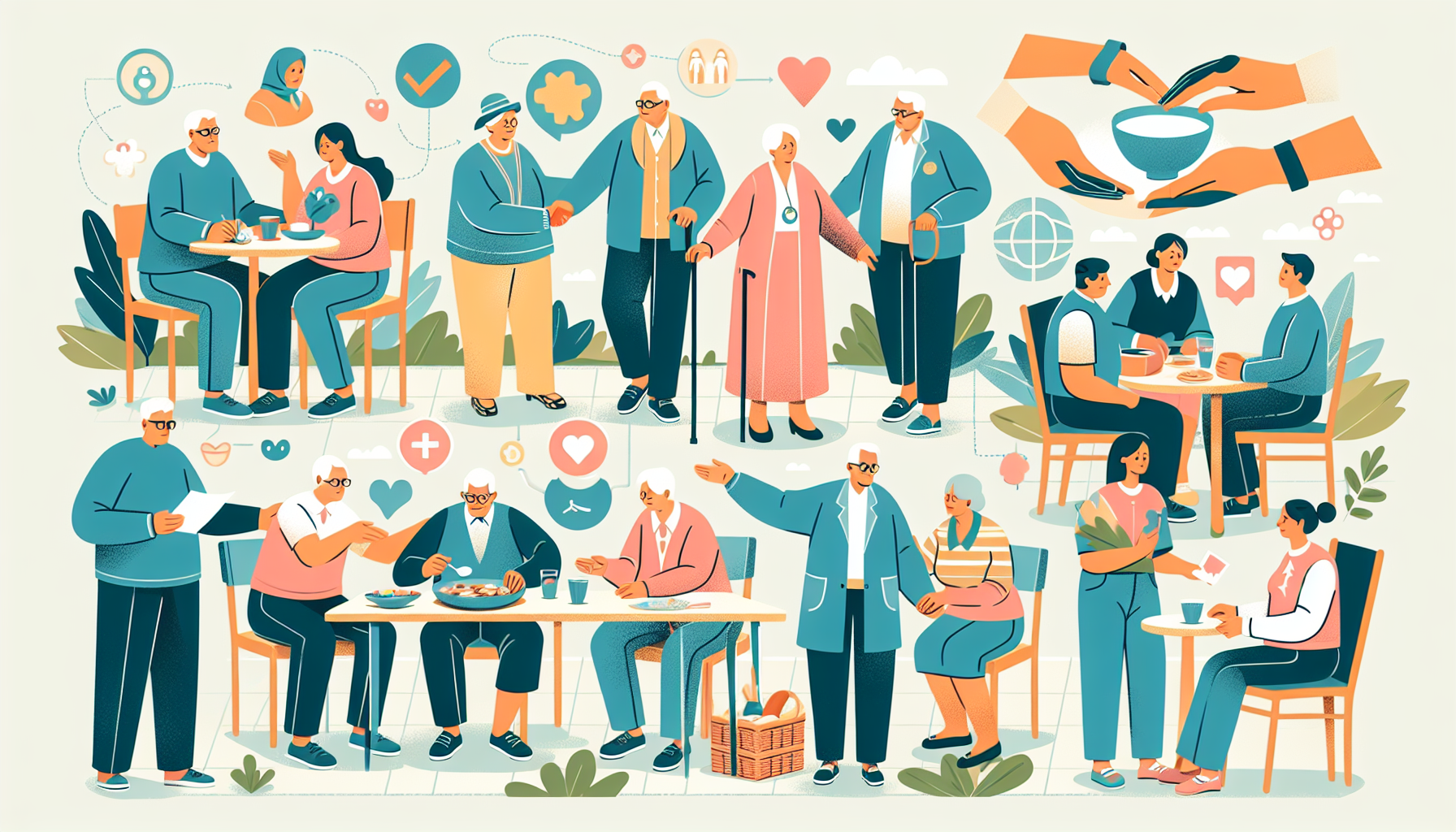As you reach a certain stage in life, it becomes essential to have a strong network of support to navigate through the challenges and joys of aging. Social support systems for older adults provide the much-needed companionship, emotional aid, and practical assistance to ensure a fulfilling and independent lifestyle. These systems encompass a range of services and activities, such as support groups, community centers, volunteer organizations, and online platforms, all designed to enhance social connections and well-being among older adults. With a focus on fostering friendships, providing helpful resources, and offering a sense of belonging, these systems play a vital role in promoting the overall health and happiness of older individuals in our communities.
What Are Social Support Systems For Older Adults?

Definition of Social Support Systems
Social support systems for older adults refer to networks and resources that provide assistance, care, and companionship to individuals in this age group. These systems are crucial in promoting overall well-being and ensuring the social, emotional, and physical needs of older adults are met. Social support can come from various sources, including family, friends, community organizations, and professional service providers.
Importance of Social Support Systems for Older Adults
Social support systems play a vital role in the lives of older adults. As individuals age, they may face various challenges such as declining health, loss of independence, and limited social interactions. Social support helps combat these challenges by providing a sense of belonging, emotional encouragement, and practical assistance. It helps older adults navigate through life transitions, cope with stress, and maintain a meaningful and fulfilling lifestyle.
Types of Social Support Systems
-
Emotional Support: Emotional support involves providing comfort, empathy, and reassurance to older adults. This may include listening to their concerns, offering encouragement during difficult times, and providing a safe space for expressing emotions.
-
Instrumental Support: Instrumental support includes practical assistance with daily tasks, such as transportation, housework, and meal preparation. This type of support helps older adults maintain their independence and ensures their basic needs are met.
-
Informational Support: Informational support involves providing guidance, advice, and information to older adults. It can include access to healthcare resources, educational materials, and assistance with decision-making processes.
-
Companionship Support: Companionship support focuses on fostering social connections and reducing feelings of loneliness. This may involve spending time with older adults, engaging in leisure activities together, or facilitating social interactions within the community.
-
Appraisal Support: Appraisal support involves providing feedback and evaluation to older adults. This type of support helps individuals gain a different perspective on their situations, make informed decisions, and boost their self-esteem.
Benefits of Social Support Systems for Older Adults
-
Improved Mental and Emotional Well-being: Social support systems contribute significantly to the mental and emotional well-being of older adults. Having a network of supportive individuals helps reduce feelings of loneliness, depression, and anxiety, promoting overall happiness and life satisfaction.
-
Enhanced Physical Health: Studies have shown that older adults who have a strong social support system tend to have better physical health outcomes. Social support encourages healthy behaviors, such as regular exercise, a balanced diet, and adherence to medical treatments. It also reduces the risk of chronic conditions, such as cardiovascular disease and obesity.
-
Reduced Risk of Cognitive Decline: Engaging in stimulating social activities and interactions provided by social support systems can help older adults maintain cognitive function and reduce the risk of cognitive decline. Social engagement has been linked to better memory, attention, and problem-solving skills in later life.
-
Increased Quality of Life: Social support systems contribute to a higher quality of life for older adults. Having strong social connections and the availability of support when needed enhances overall life satisfaction, provides a sense of purpose, and promotes a positive outlook on aging.
Factors Affecting Social Support Systems for Older Adults
-
Geographic Location: The geographical location of older adults can influence the availability and accessibility of social support systems. Those residing in rural or remote areas may have limited access to community resources and services, making it challenging to build and maintain social connections.
-
Socioeconomic Status: Socioeconomic factors, such as income and education level, can impact the social support systems available to older adults. Limited financial resources may restrict access to certain services and activities, reducing the potential for social engagement.
-
Social Connectedness: The extent of an older adult’s social network and relationships plays a critical role in their social support system. Individuals with strong social ties have greater opportunities for support and companionship compared to those who are socially isolated or have strained relationships.
-
Availability of Resources: The availability of resources, such as community programs, healthcare services, and transportation options, directly affects the development and maintenance of social support systems for older adults. Accessibility to these resources greatly impacts their ability to engage in social activities and receive necessary support.
-
Cultural Factors: Cultural norms, beliefs, and traditions can influence the social support systems for older adults. Some cultures have strong family support systems, while others heavily rely on community or religious organizations. Understanding and respecting cultural diversity is essential in providing appropriate and effective social support.
Challenges in Developing and Maintaining Social Support Systems for Older Adults
-
Loneliness and Social Isolation: Loneliness and social isolation are significant challenges faced by older adults. Factors such as loss of loved ones, retirement, and limited mobility can contribute to feelings of loneliness. Lack of social support can lead to adverse physical and mental health outcomes.
-
Limited Accessibility to Services: Older adults, particularly those with mobility issues or living in remote areas, may face difficulties in accessing social support services. Limited transportation options, inadequate infrastructure, and a lack of awareness about available resources can hinder their ability to connect with others.
-
Stigma and Stereotypes: Ageism, stereotypes, and stigma surrounding aging can impede the development of social support systems for older adults. Negative attitudes and beliefs about aging can discourage individuals from seeking support or engaging in social activities, leading to social isolation and reduced well-being.
-
Lack of Family Support: Older adults who lack family support may face challenges in developing a robust social support system. Loss of loved ones, estranged relationships, or geographical separation can limit their access to emotional and instrumental support, increasing their vulnerability and isolation.
Initiatives to Enhance Social Support Systems for Older Adults
-
Community Programs: Community programs, such as senior centers, support groups, and recreational activities, are essential in promoting social support for older adults. These programs provide opportunities for social interaction, skill-building, and access to various support services.
-
Volunteer Organizations: Volunteer organizations play a crucial role in enhancing social support systems for older adults. By providing companionship, assistance with daily tasks, and participating in community events, volunteers help address the needs of older individuals and contribute to their social well-being.
-
Technology-Based Solutions: Technology-based solutions, such as social media platforms, online support groups, and virtual communication tools, offer alternatives for older adults to engage in social interactions. These platforms promote connections, reduce isolation, and provide access to valuable information and resources.
-
Senior Centers and Social Clubs: Senior centers and social clubs offer a variety of programs and activities designed to foster social connections among older adults. These spaces provide a supportive environment for individuals to engage in recreational, educational, and cultural activities while forming meaningful friendships.
Conclusion
Social support systems are instrumental in promoting the well-being of older adults. By providing emotional, instrumental, informational, companionship, and appraisal support, these systems enhance the mental, emotional, and physical health of older individuals. Factors such as geographic location, socioeconomic status, social connectedness, availability of resources, and cultural factors impact the development and maintenance of social support systems. Overcoming challenges such as loneliness, limited accessibility, stigma, and lack of family support requires initiatives such as community programs, volunteer organizations, technology-based solutions, and senior centers. By investing in and strengthening social support systems, society can ensure that older adults lead fulfilling and connected lives.


